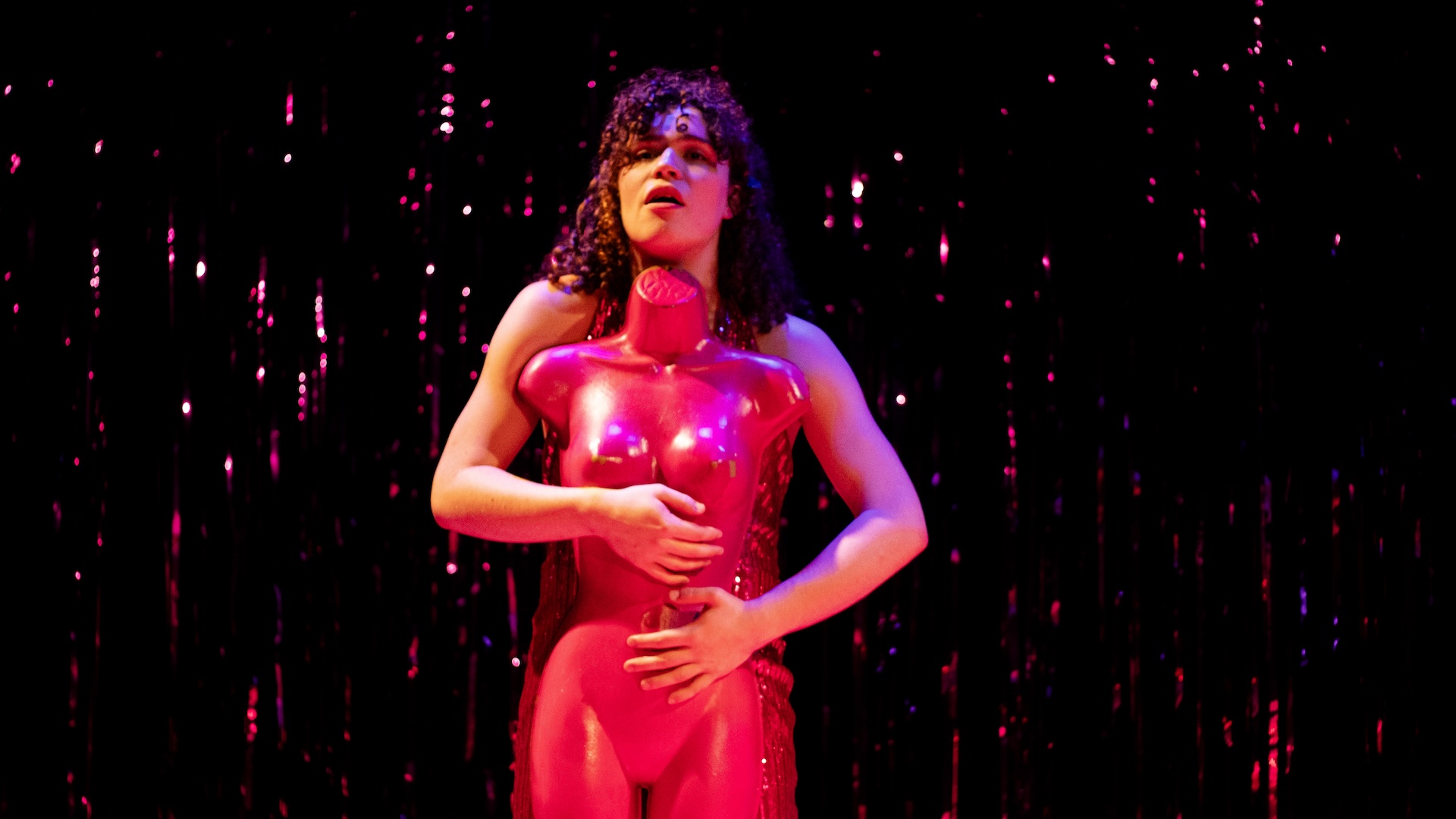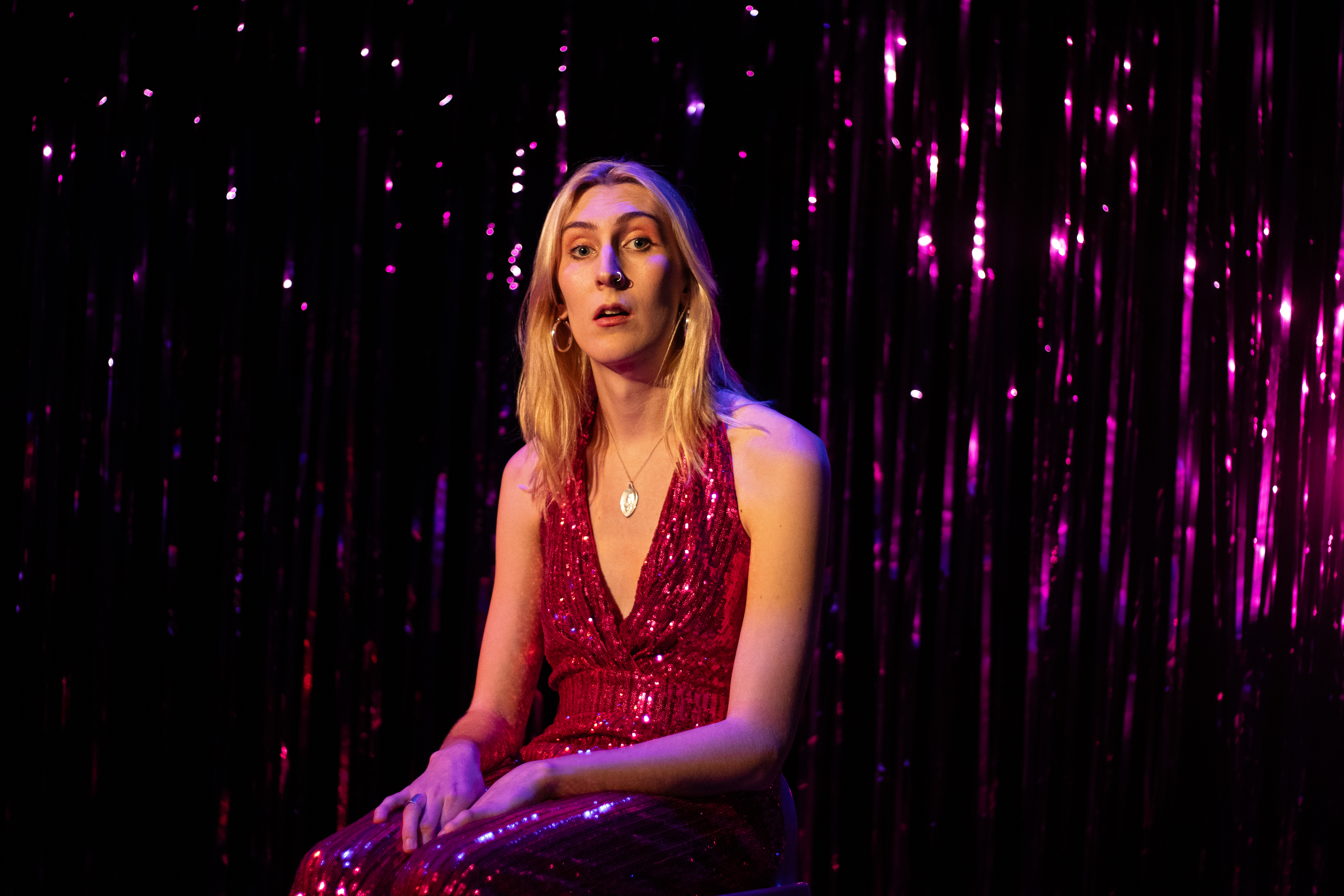52 Monologues for Young Transsexuals was created with the feeling of necessity. For one, we were both writing terrible one woman shows and neededone another to create something more stageable. But more profoundly, there is a political and artistic necessity in creating nuanced, joyful, challenging, hopeful, real self-representation as marginalised people.
Right now in the UK, there is a real sense that everyone is talking about trans women in the press, in politics and society more broadly. 52 Monologuesis our opportunity to tell our stories in our own words, so people can actually hear from us, authentically.
Creating the show, we did interviews with around 10 trans women who lived locally to us at the time, and created it by weaving both theirs and our voices. We asked questions about sex, love, intimacy, and basically had girl talks through these sleepover-style confessionals with one another about our experiences.
What was really striking, in our memory, was not so much the content of these interviews per se, but that none of us had really done this before. None of us had sat down with other trans women and just shared our lives, and shared space. We drank coffee together, sat on the floor, smoked fags out of bedroom windows, without any music and just reallytalked. This became an incredibly important thrust of making the show: not just to dramatise our experiences, but also to make space in the show for friendship and sisterhood between trans women.
- Trans kids just want to live and be happy. The government has no reason to make their lives harder
- Rishi Sunak’s cheap trans joke in front of Brianna Ghey’s mum is worse than he could ever realise
This same sisterhood was instrumental in creating the show. Myself and Charli met at the University of Cambridge and were both in a bit of a state, emotionally, when we found one another. It feels quite cosmic looking back, because we needed one another and this show at that time in our lives.
Cambridge was, on balance, quite a hard place to be trans women, and we felt a lot of rage about the way we were being treated there. Cambridge is also quite small, so we felt anger towards people who were in our community and those we had mutual friends with as a result. 52 Monologues was very much a scream into the Cambridge-void and we really channelled this anger into the show when it premiered originally as a student production. It was like this wake-up call for all the cis people around us, that this is happening, and that it fucking sucks!









